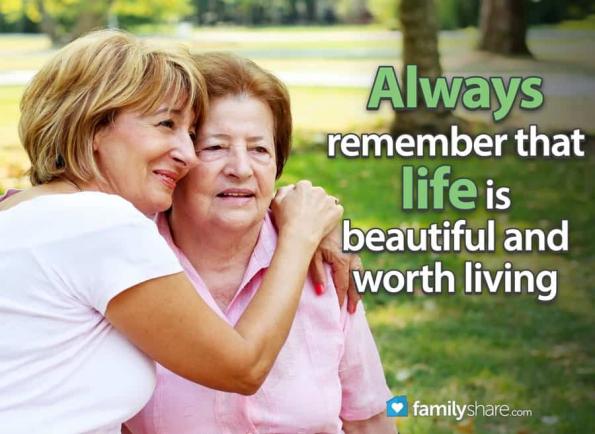
Most of us never anticipate having to care for an elderly family member, but many of us will face this challenge at some point in our lives. Unless we are involved in caring for someone who needs our full- or part-time assistance, we never fully understand how difficult and yet rewarding it can be.
Caregivers often have other responsibilities, such as providing a living and caring for their own immediate family members. When in this situation of caring for the elderly, it is not unusual to experience a wide range of challenges and emotions:
-
Emotional and physical exhaustion
-
Guilt
-
Anger
-
Frustration
-
Isolation
-
Depression
-
Feelings of being overwhelmed
-
Financial concerns
-
Stress on relationships
-
Lack of understanding and preparation
Take time for yourself
Because of these feelings, it is extremely important that when caring for an elderly person you take adequate time to care for yourself. Studies show that stress levels are much lower when a strong bond exists between the caregiver and the individual for whom you are giving care. However, even in the best of circumstances, this is not always the case. Caregivers are frequently unwilling and even ashamed to ask for help because they falsely assume that doing so means they can't adequately care for a loved one. No one can do everything, so it is imperative that caregivers get the help they need.
Maintain your own health
In order to provide effective care, the caregiver needs to maintain his or her own mental and physical health. Neglecting your own care may have long-term consequences for you and the person who needs your care.
If you are caring for an elderly loved one, be sure you take the time to do the following for yourself:
1. Get enough sleep
2. Exercise and eat nutritious meals
3. Take regular short- and long-term breaks from care-giving responsibilities
4. Ask for help and allow others to help
5. Be aware of your own needs and make sure those needs are properly filled
6. Don't be afraid to voice your concerns and frustrations to a trusted family member or friend.
In summary, it is important to remember:
-
What you are doing is hard work, and respite is necessary for your mental and physical health. Take breaks whenever possible.
-
Be aware of the signs of depression. Don't delay getting professional help when needed.
-
People care and they want to help. When help is offered, accept it. Be specific as to what they can do.
-
It is necessary to be educated about your loved one's condition so you can understand what they are going through better and be able to communicate effectively with doctors.
-
It is in the best interest of your loved one to be as independent as possible. Let them do things for themselves whenever they can.
-
You must trust your instincts. Most of the time they'll lead you in the right direction.
-
It's OK to grieve for the loss of the person you once knew and loved, but always remember that life is beautiful and worth living.
-
You are not alone. Seek support from other caregivers.
Caring for an elderly family member can be a rewarding experience. Not all of us have the opportunity to express our love and appreciation to a parent or spouse for what they have done for us in such a way. Take good care of them now so you will have no regrets later. This week, take time to investigate the various resources available to you including the American Association of Retired Persons (AARP), the National Council on Aging (NCOA), Meals on Wheels, religious programs, hospice and social workers, home health care agencies and your local community senior center.

